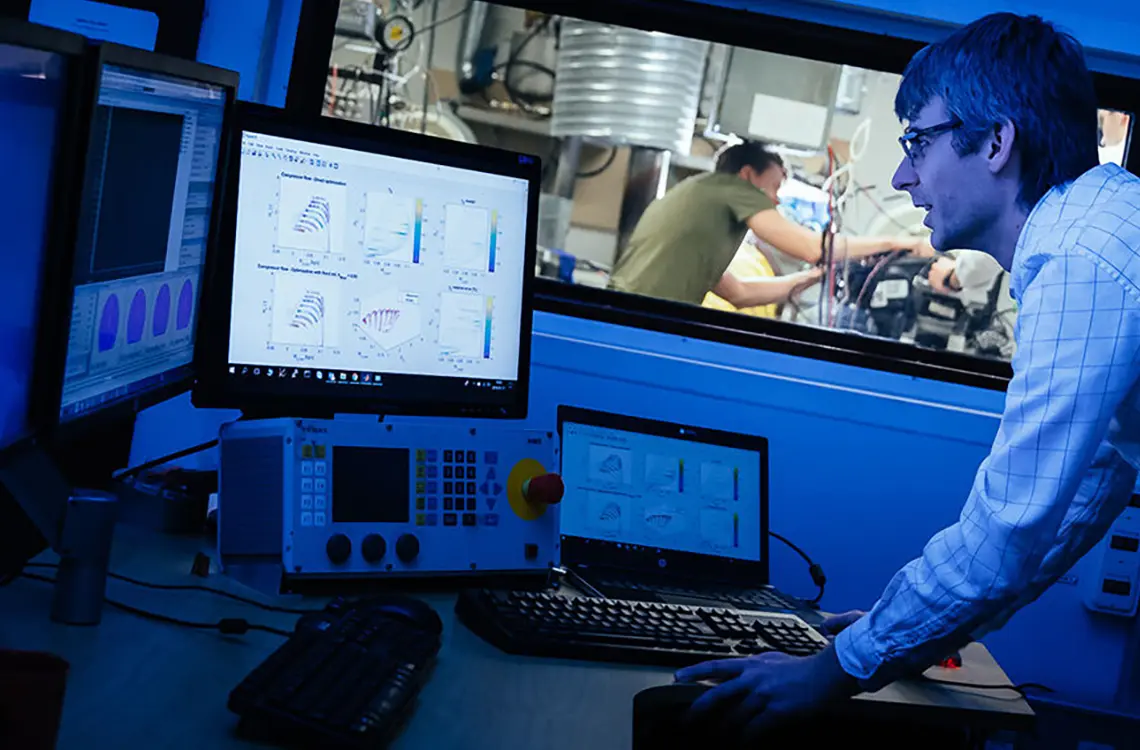
13 Jan 11 Signs Your Computer Needs a Checkup: A Diagnostic Guide for Desktop and Laptop Users
Just like our bodies need regular checkups to stay healthy, our computers also benefit from periodic assessments to ensure they’re running smoothly and efficiently. Ignoring those subtle aches and pains can lead to more serious problems down the line, potentially resulting in costly repairs, data loss, or even a complete system failure. While some computer problems are glaringly obvious – a cracked screen, a complete system crash – others are more subtle, lurking beneath the surface and slowly degrading performance or putting your data at risk.
Recognizing these subtle signs is crucial for maintaining your computer’s health and preventing those minor glitches from turning into major disasters. This post will explore 11 common signs that your computer needs a checkup done by a pc repair specialist. Keep reading!
Slow Performance
One of the most common signs that your computer needs a checkup is a noticeable decline in performance. This can manifest in various ways, from slow startup times and sluggish application loading to an overall sluggishness in the system’s responsiveness. If your computer is taking longer than usual to boot up, applications are crawling at a snail’s pace, or you’re experiencing frequent lags and delays, it’s a clear indication that something is amiss.
Slow performance can stem from various factors, including an aging hard drive, insufficient RAM, a cluttered operating system, or even malware infections. As your computer ages, its components may struggle to keep up with the demands of modern software and operating systems. An overloaded hard drive with limited free space can also significantly impact performance. Additionally, a fragmented hard drive, where files are scattered across different sectors, can slow down data access and overall system responsiveness.
Battery Life Issues
Common indicators of battery problems include a significantly reduced runtime, the battery not holding a charge, the laptop unexpectedly shutting down, or the battery physically swelling or bulging. If you’re experiencing any of these issues, it might be time to consider a battery replacement.
Want to repair laptop battery? Don’t attempt this yourself! It must be replaced. And it is a delicate process, so it’s often best to seek professional help from a qualified technician. They can diagnose the issue accurately, recommend the right battery replacement, and ensure that the installation is done correctly and safely.
Unusual Noises
Pay attention to any unusual noises coming from your computer. Grinding, clicking, or whirring sounds can indicate problems with your hard drive, fan, or other components. These noises should not be ignored, as they can be a sign of impending hardware failure. A failing hard drive, for example, might produce clicking or grinding sounds as the read/write heads struggle to access data on the platters. A malfunctioning fan can produce excessive noise or a rhythmic clicking sound as the blades hit an obstruction.
These sounds can be indicative of mechanical problems, overheating, or even loose components within your computer. Ignoring these warning signs can lead to more severe damage and potentially data loss. If you hear any unusual noises, it’s crucial to back up your data immediately and seek professional help to diagnose and resolve the issue.
Overheating
If your computer is constantly running hot, the fan is working overtime, or the surface of your laptop is uncomfortably warm, it could be a sign of overheating. Overheating can damage components and lead to system instability, causing crashes, data corruption, and even permanent hardware failure. Excessive heat can also shorten the lifespan of your computer’s components, particularly the processor, graphics card, and battery.
Overheating can be caused by various factors, including dust buildup in the cooling system, a malfunctioning fan, or inadequate ventilation. To prevent overheating, ensure that your computer’s vents are clear and not obstructed by dust or debris. Use a cooling pad to improve ventilation, especially when using your laptop on soft surfaces like beds or couches. Avoid running demanding applications for extended periods. Instead, consider having your computer’s cooling system cleaned and thermal paste reapplied by a technician.
Frequent Crashes or Freezes
If your computer is frequently crashing or freezing, it’s a sign that something is not right. This could be due to software conflicts, hardware malfunctions, or even malware infections. Frequent crashes can disrupt your workflow, cause data loss, and lead to frustration and lost productivity. They can also indicate underlying problems that, if left unaddressed, can escalate into more serious issues.
Software conflicts can occur when different applications or programs compete for resources or interfere with each other’s operation. Hardware malfunctions, such as a failing hard drive or faulty RAM, can also cause crashes and instability. Malware infections can disrupt system processes, corrupt data, and lead to frequent crashes. If you’re experiencing frequent crashes or freezes, it’s important to diagnose the root cause and take appropriate action to resolve the issue.
Error Messages
Error messages are your computer’s way of telling you that something is wrong. Don’t ignore them. Take the time to understand what the error message means and try to troubleshoot the problem. If you can’t resolve it yourself, seek professional help. Error messages can provide valuable clues about the underlying issue, helping you diagnose the problem and find a solution.
They can indicate hardware problems, such as a failing hard drive or a malfunctioning memory module. They can also point to software issues, such as corrupt files, driver conflicts, or operating system errors. In some cases, error messages might indicate a security threat, such as a malware infection or an attempted intrusion. By paying attention to error messages and taking appropriate action, you can prevent minor issues from escalating into major problems.
Strange Behavior
If your computer is behaving strangely, it could be a sign of a malware infection or other software issues. Be wary of unexpected pop-ups, changes in your browser settings, or programs opening and closing without your input. These unusual behaviors can indicate that your computer has been compromised by malware or that there are underlying software conflicts or corruption issues.
Malware can cause a range of problems, from stealing your data and disrupting your system’s functionality to redirecting your web traffic and displaying unwanted advertisements. Software conflicts can lead to crashes, freezes, and data loss. If you notice any strange behavior on your computer, it’s important to take action to diagnose and resolve the issue promptly.
Data Corruption or Loss
Data corruption or loss can be a sign of serious problems with your hard drive or software. If you’re experiencing data corruption, such as files becoming unreadable or databases malfunctioning, or if you’ve lost data unexpectedly, it’s crucial to address the issue promptly to prevent further damage or loss. Data corruption can occur due to various reasons, including hardware failures, software errors, power outages, or even malware infections.
Losing critical business data, personal files, or cherished memories can be devastating. Regularly backing up your data is essential to protect against data loss, but it’s equally important to address the underlying cause of the corruption or loss to prevent it from recurring. If you’re experiencing data corruption or loss, it’s best to seek professional help to diagnose the problem and recover your data if possible.
Connectivity Issues
If you’re experiencing problems connecting to the internet, accessing network resources, or using peripheral devices like printers or scanners, it could indicate a problem with your network configuration, drivers, or hardware. Connectivity issues can disrupt your workflow, hinder communication, and prevent you from accessing online resources.
These issues can be caused by various factors, such as a faulty network adapter, outdated or incompatible drivers, incorrect network settings, or problems with your internet service provider (ISP). Troubleshooting connectivity issues might involve checking your network cables, updating your drivers, resetting your router, or contacting your ISP for assistance.
Outdated Software
Outdated software can be a security risk and can also lead to performance issues and compatibility problems. Make sure your operating system, applications, and drivers are up to date. Software updates often include security patches that address vulnerabilities that attackers could exploit. Outdated software can also be incompatible with newer hardware or software, leading to conflicts and errors.
Keeping your software up to date ensures that you have the latest features, bug fixes, and security enhancements. Enable automatic updates whenever possible and regularly check for updates for your applications and drivers.
Physical Damage
Physical damage, such as cracks, dents, or spills, can affect your computer’s functionality and lifespan. If your laptop has been dropped or your desktop has been exposed to liquids, it’s important to have it checked by a professional. Physical damage can cause various problems, from cosmetic issues to serious hardware malfunctions.
Cracked screens, damaged keyboards, or broken ports can hinder your ability to use your computer effectively. Spills can damage internal components, leading to short circuits, data loss, or even complete system failure. If you’ve experienced any physical damage to your computer and want to know how to repair broken laptop screen, it’s best to have it inspected by a qualified technician to assess the extent of the damage and recommend appropriate repairs.
Taking Action: The Importance of Regular Checkups
Just like regular checkups can prevent serious health issues, regular computer maintenance can help identify and address potential problems before they escalate into major disasters. This includes running diagnostics, updating software, cleaning your system, and backing up your data. Preventative maintenance can help you avoid costly repairs, data loss, and downtime.
A professional technician can perform a thorough diagnosis of your computer, identify the root cause of any problems, and recommend the best course of action. This can save you time, money, and frustration in the long run. Professional technicians have the expertise and tools to diagnose complex issues, identify potential problems, and provide effective solutions
Conclusion
Your computer often provides subtle clues that something is amiss. By recognizing these signs and taking proactive steps, you can prevent minor glitches from turning into major headaches. Investing in preventative maintenance and regular checkups can save you time, money, and frustration in the long run. It’s always better to address potential problems early on than to deal with a major disaster.
If you’re experiencing computer problems or simply want to ensure your system is running optimally, reach out to Downtown Computer Services. We have been providing expert pc hardware repair and maintenance services for over 25 years. Our technicians have the knowledge and experience to diagnose and resolve various computer issues. Contact us today at (954) 524 9002 for comprehensive computer services, including diagnostics, repair, maintenance, data recovery, virus removal, and software installation.
Key Takeaways
- Recognizing the signs of computer problems, such as slow performance, unusual noises, and frequent crashes, is crucial for preventing major issues.
- Regular computer maintenance, including software updates, cleaning, and backups, can help prevent costly repairs and data loss.
- Seeking professional help from experienced technicians can save time and ensure effective solutions for complex computer problems.
Check out other relevant news
- How Easy-to-Use Hacking Tools Are Fueling Cybercrime
- Cryptocurrency Security for Small Businesses: Protecting Your Wallet
- The Infostealer Epidemic: Protecting Your Business from the Latest Wave of Cyberattacks
- The Identity Crisis: How Compromised Credentials Can Cripple Your Business
- Beyond the Brick and Mortar: Building Your Online Storefront with Digital Marketing
